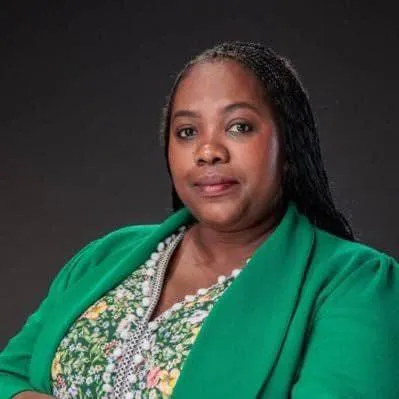
Kholofelo Morodi, Member of the Mayoral Committee for Corporate and Shared Services, assured students from Tshwane University of Technology that the City of Tshwane will address their concerns regarding safety and accommodation.
Image: Supplied/ City of Tshwane
Over 200 student leaders gathered at the Tshwane House Council Chamber recently to discuss the challenges they face in their daily lives, including accommodation difficulties, safety issues, and social exclusion.
The students, mostly from the Tshwane University of Technology (TUT), highlighted the harsh realities of living in areas plagued by crime, poor services, and inadequate transportation.
Students residing in Sunnyside flats owned by foreigners reportedly face exposure to drugs and illicit activities, while those living in townships like Soshanguve and Ga-Rankuwa are frequently targeted by criminals who steal their valuables, including mobile phones and laptops.
"In Ga-Rankuwa, we are having a terrible experience with this. The minimum we can expect is security and police presence," said Terry Mabe, Student Representative Council (SRC) president of the Ga-Rankuwa campus.
He expressed concern that the area is semi-developed and poses risks to students; even within the campus, warning notices about crime danger zones are posted.
He said students are being targeted even in their rented accommodations, citing a recent incident in which 11 students were robbed of their cellphones and laptops.
Student leaders urged the City of Tshwane executive to intervene in addressing their challenges, particularly by deploying metro police to provide security for them.
"We are requesting that Tshwane can take this into consideration by running a programme that will ensure our safety," Mabe said.
Nqobile Shezi, SRC treasurer general, said students are living in areas that pose safety risks, with some residences located near taverns, making it difficult for them to focus on their studies and achieve good results.
One of the leaders raised a concern that student residences are often not conducive, with poor services and inadequate transportation.
"There are students who left Soshanguve to move into student accommodation in town only to find out that those private accommodations are owned by Nigerians who exposed them to drugs," he said.
Dr Livhuwani Ndou from TUT echoed the concern that most students at the Soshanguve campus reside in environments that are not conducive for learning.
“Most of the students in other campuses are forced to walk longer distances from where they stay to the campus and those have serious safety challenges,” he said.
Kholofelo Morodi, mayoral committee member for Corporate and Shared Services, said the city wants to build a safe environment for students.
"We know that students are living in very horrible conditions. You have small spaces on campus and you don’t have all the amenities that you need," she said.
Morodi promised that the city will increase law enforcement presence across the city to safeguard students against violence and rape.
The discussion also focused on the pressing need for youth-driven transformation in areas such as employment, innovation, leadership, and civic engagement.
Morodi said the colloquium was a platform for listening, sharing, and building lasting partnerships with the student community.
"The City must be a space where young people feel safe, seen, and involved in shaping their future," she said.
rapula.moatshe@inl.co.za